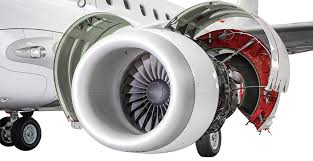We are honored to provide insulation products for aviation companies. In the aerospace industry, the safety and reliability of electrical systems are of paramount importance. Insulation materials play a crucial role in ensuring the proper functioning of these systems. From preventing electrical leakage and short circuits to providing thermal protection, insulation materials are vital components in aircraft design. Today, we will explore the critical role of insulation materials in the aerospace industry, focusing on their importance, types, and applications.

During flight, aircraft may encounter extreme temperature variations. Mica products provide thermal insulation and protection, preventing the adverse effects of overheating or extreme cold on electronic equipment and wiring, ensuring the proper functioning of the electrical system. Additionally, mica insulation products possess high flexibility and pliability, allowing them to adapt to various shapes and sizes of electrical equipment, making installation and usage convenient.
One of the main roles of insulation coating in aerospace is to provide electrical insulation protection at the connection points of electronic components and circuits. These connection points can be found in various parts of the spacecraft, such as control systems, communication systems, navigation systems, and more. By covering these connection points, insulation coatings prevent electrical current leakage and short circuits, ensuring the proper transmission and processing of electrical signals.
Insulation tubes play different roles in different parts of spacecraft. At wire and cable connections, insulation tubes provide reliable insulation performance to prevent short circuits and leakage between wires. In cable bundles, insulation tubes organize and protect cables, enabling them to withstand the vibration and impact of spacecraft. In critical systems of spacecraft, such as navigation, communication, and propulsion systems, insulation tubes effectively isolate high voltage and high-temperature wires, ensuring the safe operation of circuits. Additionally, insulation tubes can provide features such as fire resistance, explosion protection, and radiation resistance to ensure the safety of spacecraft.
Insulation boards are widely used in aircraft to isolate and protect circuit boards, providing reliable electrical insulation and mechanical protection. The advantages of insulation boards lie in their ability to effectively isolate circuit boards, preventing electrical interference and short circuits. Additionally, they possess a certain degree of temperature resistance, enabling them to maintain stable insulation performance in high-temperature environments.
Insulation foam possesses insulation and damping characteristics in aerospace applications, offering advantages in protecting electronic equipment from vibration and impact. Insulation foam can cushion and absorb vibration and impact forces, reducing damage to electronic equipment. Additionally, it is lightweight, avoiding excessive weight added to the aircraft.
Insulation varnish is used for insulation in electromagnetic coils and motors in aircraft, offering advantages in providing excellent electrical insulation and high temperature resistance. Insulation varnish effectively isolates electromagnetic coils and motors, preventing electrical faults and short circuits. Additionally, it maintains stable insulation performance in high-temperature environments, ensuring the safe operation of electrical components.
1.Thermal conductivity: Insulation materials with low thermal conductivity are preferred as they limit heat transfer between different areas of the aircraft. This helps maintain a stable temperature within the cabin and protects sensitive equipment from extreme temperatures.
2.Weight: Aerospace applications demand lightweight materials to minimize the overall weight of the aircraft. Insulation materials with high strength-to-weight ratios are favored to reduce fuel consumption and enhance aerodynamic efficiency.
3.Fire resistance: Insulation materials should possess excellent fire resistance properties to prevent or delay the spread of flames in the event of a fire. Fire-resistant materials ensure the safety of passengers and crew members and reduce the risk of catastrophic accidents.
4.Durability: Aerospace insulation materials should be able to withstand harsh environmental conditions, including extreme temperatures, high altitudes, and exposure to radiation. They should maintain their performance and integrity over extended periods without degradation or loss of insulating properties.
5.Off-gassing: Insulation materials should have minimal or no off-gassing, as the release of harmful gases and fumes can be detrimental to occupants’ health, compromise air quality, and damage sensitive electronic components.
6.Noise reduction: Insulation materials that provide effective noise reduction are crucial for enhancing the comfort of passengers and crew members. These materials help minimize the transmission of noise from engines, airflow, and other sources to the cabin, creating a quieter environment.
7.Compatibility with other materials: Insulation materials should be compatible with other materials used in aerospace applications, such as adhesives, sealants, and structural components. Compatibility ensures proper integration and avoids issues such as material degradation, delamination, or reduced performance.
Insulation materials are vital components in the aviation industry, ensuring the safety and reliability of electrical systems. From preventing electrical leaks and short circuits to providing thermal protection and environmental resistance, these materials play a crucial role in aircraft design and operation. The continuous advancement in insulation materials promises even better performance and safety in the future. As the aviation industry evolves, the importance of insulation materials will continue to grow, contributing to the overall safety and efficiency of aircraft systems.
If you need assistance, please contact us at +86 16650273775 or email ztelec@ztelecgroup.com. Or you can fill out our message form and we will get back to you as soon as possible.
If you need our products please write down any questions, we will reply as soon as possible.
There are three ISO certificates for quality certification. The certificates will be shown later. ISO
After receiving the advance payment, the production cycle is 15-25 days. And the transportation cycle should be calcul……
We supply with installation guide and user manual for each transformer. If you do not understand them. We will offer v……